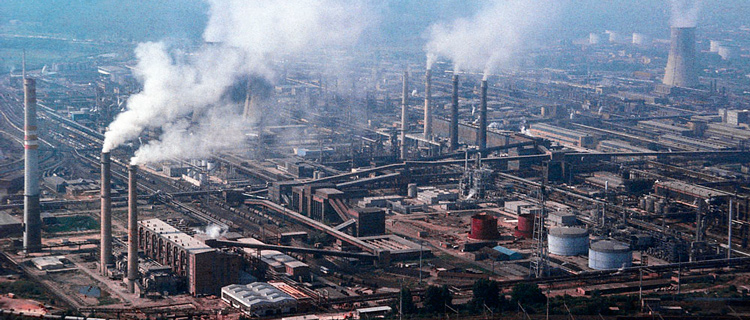
Rethinking economics
Avoiding bankrupting nature
Circular economy key to well-being in the Anthropocene
Anxiety and eyebrows were raised when the World Bank warned of an imminent global warming of 4°C. However, as centre research has previously shown, accelerated climate change due to raising temperature levels is just one of the planetary boundaries we risk transgressing. Altogether, the human pressure on the planet is at a level where it poses a major risk for the future prosperity of society.
In a new book by centre director Johan Rockström and board member Anders Wijkman, they argue that this dilemma can only be addressed through a transformation of the entire economic system, including the financial markets. The system of quarterly reporting should be abandoned and financial institutions should be obliged to disclose their risk exposure in terms of high-carbon investments.
The new book is entitled Bankrupting Nature - Denying our Planetary Boundaries, (Earthscan/Routledge) and is a re-written version of the Swedish book "Den stora förnekelsen", which was published in 2011. The book is an official Report to the Club of Rome, and was launched in Brussels at the European Parliament in December 2012.
"Green growth" not enough
"The challenges of sustainability cannot be met by simply tinkering with the current economic system", Anders Wijkman says. He is a former Member of the European Parliament and has, among many other things, been Policy Director of the United Nations Development Programme. Today he is a member of the Royal Swedish Academy of Sciences and Co-President of the Club of Rome.
"We need a 'circular economy' that decouples wealth and welfare from resource consumption, and assigns a value to natural capital, so the depreciation of the earth's resources and the loss of biodiversity are taken into account in national as well as company budgets," Wijkman argues.
Politics, economics and ecology
A recent review of the book in Nature says "Bankrupting Nature deserves our attention.... The book's arguments are familiar but rarely have they been gathered together in one place to clarify the links between politics, economics and ecology."
The new book provides a blue-print for a radically changed economic system that links economics with ecology. It argues that this is the only way to generate economic development in the future. A key element of such a new economy is to design industrial systems that recycle and reuse materials wherever possible and phase-out fossil fuels. This would be promoted through adopting binding targets for resource efficiency, increasing the taxes on the use of virgin materials and lowering taxes on labour, and a research policy that emphasises sustainable innovation and design.
"We need new business models such as moving from products to services or towards a circular economy based on re-use, reconditioning and recycling — all with the aim of facilitating sustainable development", Anders Wijkman says.






